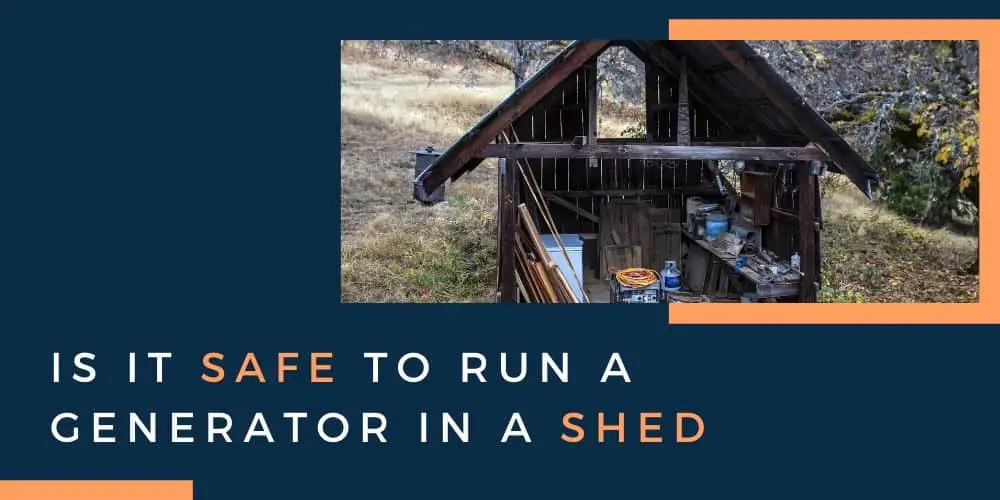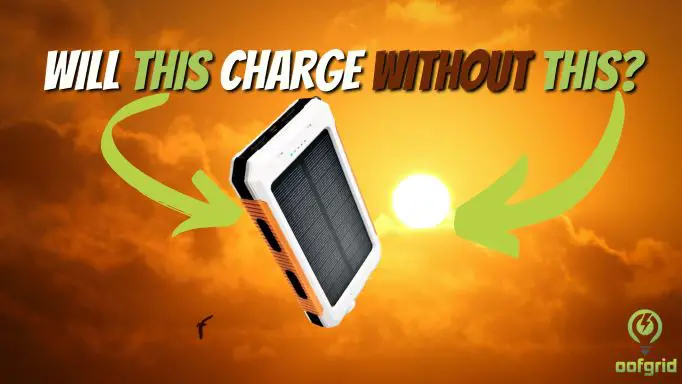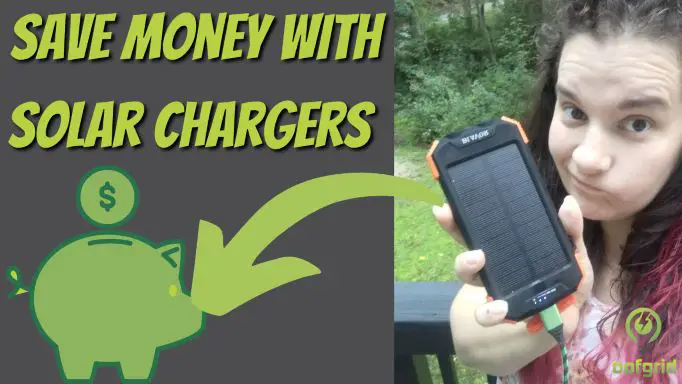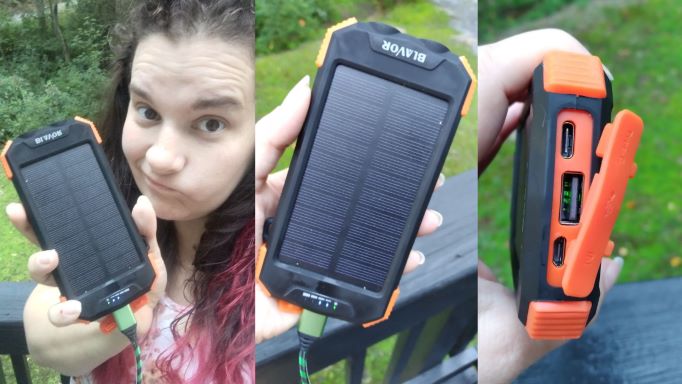Having a detached shed can be a real lifesaver when it comes to having a dedicated space for things like DIY projects, however, one important aspect of this is having a source of power in the shed. Many people might opt for running a portable generator in their shed as their main power source, but is this a safe option? Is it Safe to Run A Generator in a Shed under any circumstances?
In short, the answer is no and, in this article, we are going to be taking a look at exactly why this is, arming you with the important knowledge you need to keep safe when powering your shed.

Contents
Why Can’t I Run a Generator in a Shed?
Running a generator in a detached shed is dangerous for a variety of reasons. The main reasons however are as follows:
- The generator poses a potential fire hazard
- There is a risk of carbon monoxide poisoning
- Noise
Regardless of the type of generator you plan to use, the risk factors remain the same, so it is important to keep this in mind when selecting a power source for your shed. Unless it’s an ultra-modern power station like the one we reviewed in our TOP 10 Power Station Review which you can read here.
It is a good idea to think about what a shed actually is, in order to better understand the risks associated with running a generator inside of one.
These outbuildings are designed for storage or for an extension on your workspace – they are not designed in the same way as a residential or commercial building is.
Carbon Monoxide Poisoning
As we mentioned earlier, one of the risks that you expose yourself to when running a generator in a shed is carbon monoxide poisoning. This can be a killer!
And that’s on the extreme end of things, but even mild exposure can cause headaches, nausea, and dizziness amongst other symptoms. The reason that it is so dangerous is that victims of this type of poisoning are not even aware that it is happening until it is too late.
A shed is not a building that has good airflow – which is essential in avoiding carbon monoxide poisoning.

When you run a generator in your shed, the machine will kick out a whole host of chemicals and in such an enclosed space, this can prove to be lethal with the exception of Smokeless and silent Power Stations.
As the generator fuel is being burnt, it is giving off a variety of substances such as nitrogen, soot, carbon dioxide, and the infamous carbon monoxide. With limited airflow, it becomes very easy for this gas to be inhaled and result in a potentially untimely demise.
This is a danger that you need to take seriously and so if you do decide to run a generator in your shed and begin to notice any of the symptoms that we have discussed, you should leave right away.
Noise Levels
You might think that this is somewhat of an irrelevant danger but in reality, being exposed to large amounts of noise, especially for long periods of time can result in hearing loss.
The most effective way of knowing whether the environment you are in is too loud, is by judging whether you are easily able to have a conversation without having to raise your voice – if you need to, it’s time to don some ear defenders.
Even the quietest of generators like the ones we test in our Top 5 Quietest Portable Generators are still around 40 dB which in a confined space can be harmful to your hearing.
Risk of Fire
Whilst a generator is manufactured in such a way that it should prevent a fire if it is used incorrectly, then the risk of fire is very real. A fire will begin when an ignition source meets with fuel and oxygen and all of these things can be produced by running a generator in your shed.
All it takes is the smallest spark of electricity to bring down the entire shed ablaze. This is not something you want.
We talked earlier about how sheds do not have good airflow and as a result, a lot of dust is likely to build up inside – this includes on and around the generator. This dust can become heated when the generator is running and be the beginning of a disastrous fire.
If all of this wasn’t bad enough, there is also the risk of obtaining some serious burns as a result of the generator backfiring.
This essentially means that the machine will chuck out a flame and if you happen to be in the way, you’re going to know about it.
In an enclosed and often very compact environment such as a detached shed, it is very easy to bump into your generator which again poses a risk of being burnt or even receiving an electric shock.
Since most people work alone in their sheds, if this were to happen and you become seriously injured, you may not be able to access help as quickly or easily as you would like.
Where Should I Put My Generator?
Of course, when you are working in your shed you are going to need a source of power and we are not suggesting that you do not use your generator at all, we are simply saying that it is dangerous to operate it within the shed.
So, with that in mind, let’s take a look at some safer options for running your generator to power your shed.
Away from the Window
Putting your generator outside the shed is the best option, however, it is important not to locate it near to any windows or doors to the shed. the reason for this is that the exhaust fumes will still be able to enter, therefore not truly eliminating the risk of carbon monoxide poisoning.
Ideally, you should situate the generator at least 20 feet away from any entrances to the shed.
Rain and Moisture
As most people are aware, water and electricity are not a good combination. It is therefore vital that you ensure your generator does not come into contact with water.
The best way of doing this is to regularly check it for any frayed wires where water could enter. If you are using an extension lead then you should be sure that it is in full working order with no signs of damage.
We would also always recommend a waterproof extension cord and circuit breaker.
You might like to read: Can generators be used in the rain?
Outdoor Fire Hazard
When placing your generator outside, you should be sure that there are no materials nearby that could easily catch on fire. These include things such as dry grass, wood or anything else likely to be fuel for a blaze.
Also, ensure there are no materials such as dry grass or paper that could blow onto the generator in windy conditions.
We have seen instances where the generator whilst running and hot had dry grass blown from over 15 feet away on to the top of it. This caused a fire within minutes which thankfully didn’t do any major damage, but it did ruin a $1000 generator.
Neighbors
Just because you have moved the generator out of the shed, that doesn’t mean that it will be any less noisy. It is important that you still be mindful and protect your ears. On top of this, if there are other houses nearby, you should make attempts to muffle the noise as far as possible to avoid disturbing local residents.
Placing a generator in a shed would only amplify the sound levels
Conclusion: Is It Safe to Run a Generator in a Shed?
Final Thoughts on Is it Safe to Run a Generator in a shed – you should really think twice about this and seriously consider operating the generator outside.
There are three main reasons that using the generator in a shed is dangerous and some of these reasons can pose a risk to life. Operating your generator out of the shed is easy and a much safer option.
Using a purpose made generator cover or container is the best solution. Then you can run your generator away from your home and still keep it protected from the elements and harsh weather conditions through winter.






